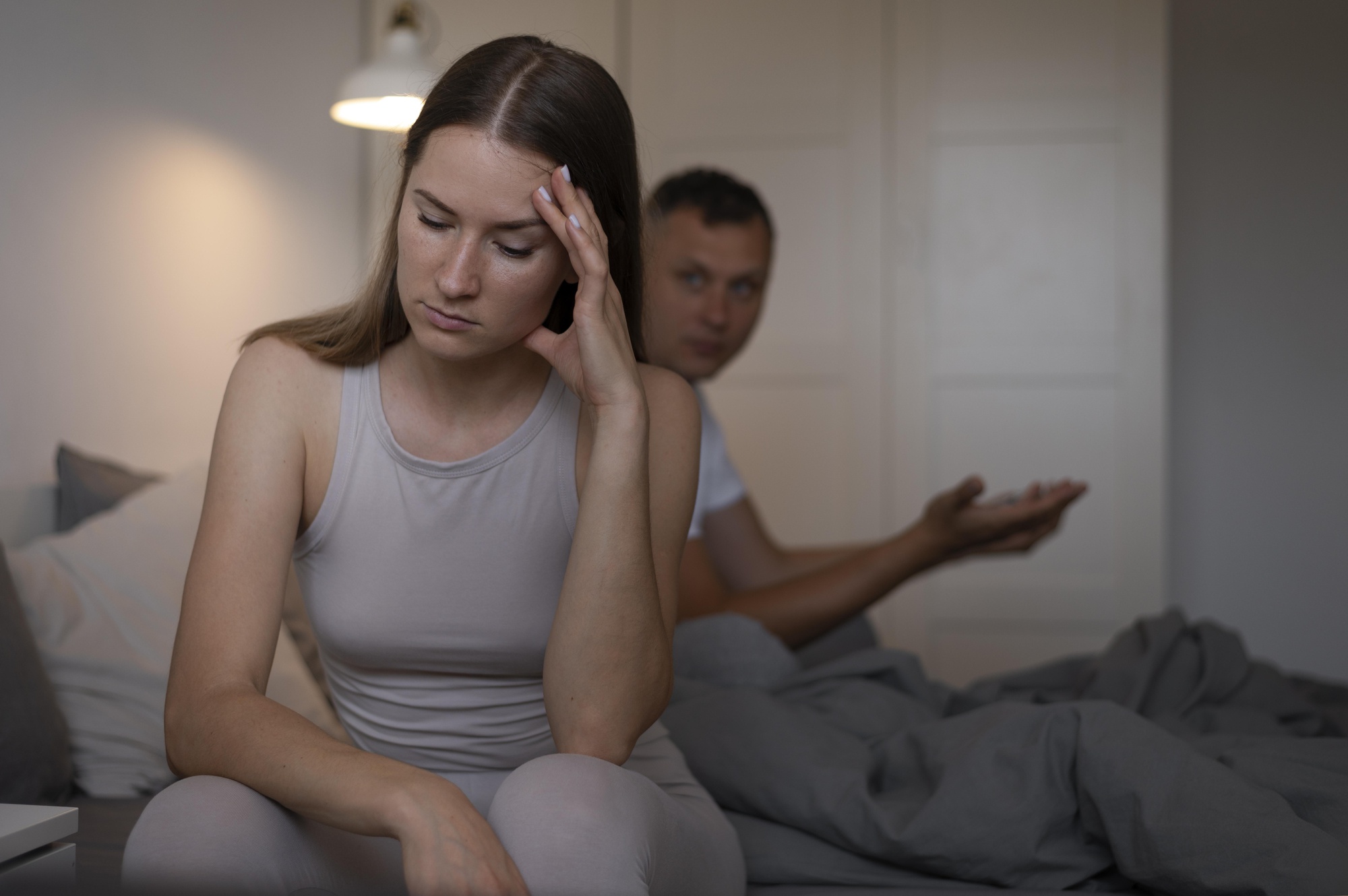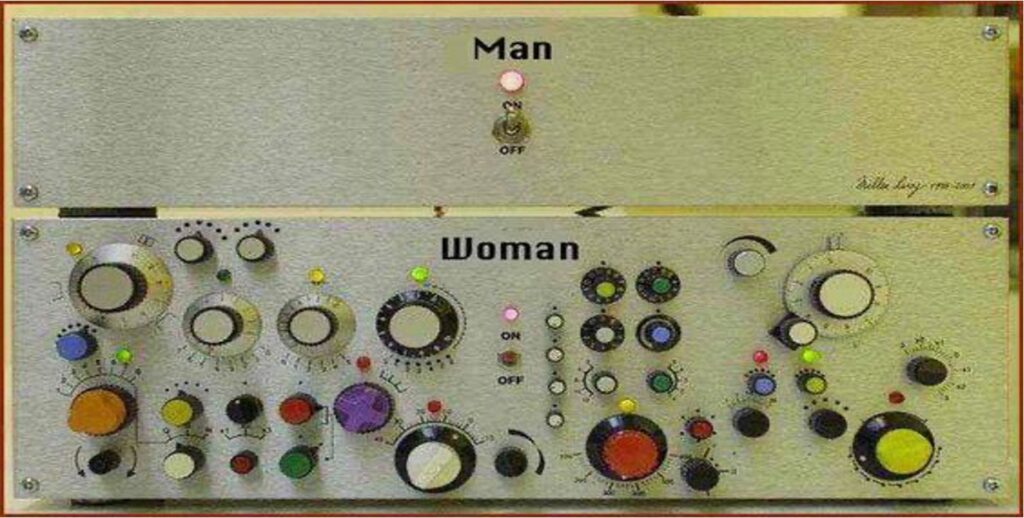Built to help women have a 360° approach to health through perimenopause to post-menopause.
welcome to MY BLOG
Why Has My Libido suddenly decreased?

December 9, 2024

For many women, the decline in libido during perimenopause and menopause can feel sudden and disheartening. This shift in sexual desire is influenced by a variety of physical, psychological, and lifestyle factors that go far beyond hormonal changes. Understanding these factors—and the options available to address them—can empower women to reclaim their sexual health and overall well-being.
Factors Affecting Libido
Libido is a complex interplay of physical, emotional, and environmental elements. During perimenopause and menopause, these factors are often magnified due to hormonal fluctuations. Here’s a closer look at some common contributors:
1. Stress
Chronic stress is a major libido killer. Whether it stems from work pressures, relationship challenges, financial concerns, or caregiving responsibilities, stress triggers the release of cortisol, which can suppress the production of sex hormones. For many women, perimenopause coincides with a particularly stressful phase of life, such as managing careers while raising teenagers or caring for aging parents.
2. Depression and Low Mood
Depression and anxiety are common during perimenopause, often appearing before physical symptoms. Declining oestrogen levels can affect neurotransmitters like serotonin and dopamine, which play a key role in mood regulation and sexual desire.
3. Fatigue and Sleep Disturbances
Night sweats, insomnia, and disrupted sleep patterns are hallmark symptoms of menopause, leading to chronic fatigue. When energy reserves are low, it’s no surprise that libido takes a backseat.
4. Relationship Dynamics
Relationship stressors, unresolved conflicts, or shifts in intimacy can also dampen desire. This is particularly relevant during menopause, a time when many women reevaluate personal and romantic relationships.
5. Blue Light and Circadian Rhythm Disruption
Modern lifestyles often involve excessive screen time, disrupting our natural circadian rhythms. Poor sleep hygiene and exposure to blue light at night can further exacerbate fatigue and reduce sexual energy.
6. Inflammation
Menopause is considered an inflammatory transition. Increased systemic inflammation can lead to symptoms such as joint pain, arthritis, and other conditions that diminish overall well-being. Chronic inflammation can also affect vaginal health, exacerbating issues like dryness and discomfort.
7. Vaginal Atrophy and Physical Symptoms
Vaginal atrophy, and dryness of vaginal tissues, is a common issue during menopause. Painful intercourse, frequent UTIs, and thrush further discourage intimacy, creating a vicious cycle.
Strategies to Reclaim Libido
Fortunately, there are several effective strategies to address the factors contributing to a loss of libido during perimenopause and menopause. These include dietary changes, supplements, lifestyle adjustments, and hormone therapy options.
1. Diet for Libido and Hormonal Balance
What we eat profoundly affects our hormonal health and overall vitality. A balanced, nutrient-rich diet can support energy levels, reduce inflammation, and improve sexual health.
Key Nutrients and Foods to Include:
- Phytoestrogens: These plant compounds mimic oestrogen and help balance hormone levels. Sources: Soy (tofu, tempeh, edamame), flaxseeds, chickpeas, lentils, sesame seeds, and broccoli.
- Healthy Fats: Essential for hormone production and brain health. Sources: Oily fish (salmon, sardines, mackerel), avocados, nuts, seeds, and olive oil.
- Magnesium-Rich Foods: Help regulate mood and improve sleep quality. Sources: Dark leafy greens, almonds, pumpkin seeds, bananas, and dark chocolate.
- Zinc: Supports libido and vaginal health. Sources: Oysters, lean red meat, chickpeas, and cashews.
- Iron-Rich Foods: Combat fatigue and brain fog caused by iron deficiency. Sources: Lean red meat, spinach, lentils, and quinoa.
- Antioxidants: Reduce inflammation and support tissue repair. Sources: Berries, citrus fruits, carrots, tomatoes, and dark leafy greens.
- Hydration: Proper hydration is essential for maintaining vaginal lubrication and overall health.
2. Supplements to Support Libido
When diet alone isn’t enough, targeted supplements can help bridge nutritional gaps and address specific menopausal symptoms.
- Omega-3 Fatty Acids: Promote brain health, reduce inflammation, and support hormonal balance.
- Vitamin D: Essential for mood regulation and immune support.
- Magnesium: Improves sleep quality and reduces muscle tension.
- Adaptogenic Herbs: Ashwagandha and Rhodiola can help reduce stress and support adrenal health.
- Maca Root: Traditionally used to boost libido and improve energy levels.
- Lion’s Mane Mushroom: May enhance cognitive function and mood.
For vaginal health:
- Vitamin E: Supports tissue repair and hydration.
- Probiotics: Promote gut and vaginal health, reducing infections and inflammation.
3. Lifestyle Changes
Incorporating healthy lifestyle practices can significantly improve libido and overall quality of life.
Stress Management:
- Practice mindfulness, meditation, or yoga to reduce stress.
- Prioritise self-care and set boundaries to avoid burnout.
Regular Exercise:
- Engage in activities like walking, swimming, or dancing to boost endorphins and improve circulation.
- Strength training can help maintain muscle mass and support hormonal health.
Better Sleep Hygiene:
- Limit screen time before bed.
- Create a calming bedtime routine, such as reading or taking a warm bath.
Open Communication:
- Talk openly with your partner about how you’re feeling and explore ways to reconnect emotionally and physically.
4. Hormone Therapy Options
For many women, hormone replacement therapy (HRT) offers significant relief from menopausal symptoms, including low libido.
Types of Hormone Therapy:
Systemic HRT: Combines oestrogen and progesterone to alleviate widespread symptoms like mood swings, hot flashes, and vaginal dryness.
Local Oestrogen Therapy: Available as creams, rings, or tablets, these treatments specifically target vaginal atrophy and dryness.
Benefits of HRT:
- Restores hormonal balance.
- Improves mood and energy levels.
- Alleviates physical symptoms like vaginal dryness and painful intercourse.
HRT may not be suitable for everyone, so consult your doctor to explore whether it’s a good option for you.
5. Additional Support for Vaginal Health
If vaginal atrophy or dryness is a major concern, there are non-hormonal treatments available:
Vaginal Moisturizers and Lubricants: Products like hyaluronic acid-based moisturizers can improve comfort during intimacy.
Laser Therapy: Some women find relief with laser treatments designed to improve vaginal elasticity and hydration.
Reclaiming Your Va Va Voom
While a drop in libido during menopause can be challenging, it is far from inevitable or irreversible. By addressing underlying factors such as stress, hormonal imbalances, and physical symptoms, you can rediscover your sexual energy and confidence.
Through a combination of a healthy diet, strategic supplements, lifestyle changes, and, if necessary, hormone therapy, you can support your body through this transition and reclaim a sense of vitality and joy in your intimate life.
The journey to feeling like yourself again may take time and experimentation, but with the right tools and support, it’s entirely possible to find your “va va voom” once more.
Thanks for reading!
Louise xx
Leave a Reply Cancel reply
I have a reputation as a compassionate and innovative therapist who produces rapid and lasting changes with my clients. Are you ready to become my next success story?
Website Designed W/ Love By Traveller By Trade
Copyright © 2021, Louise The Therapist
Privacy Policy